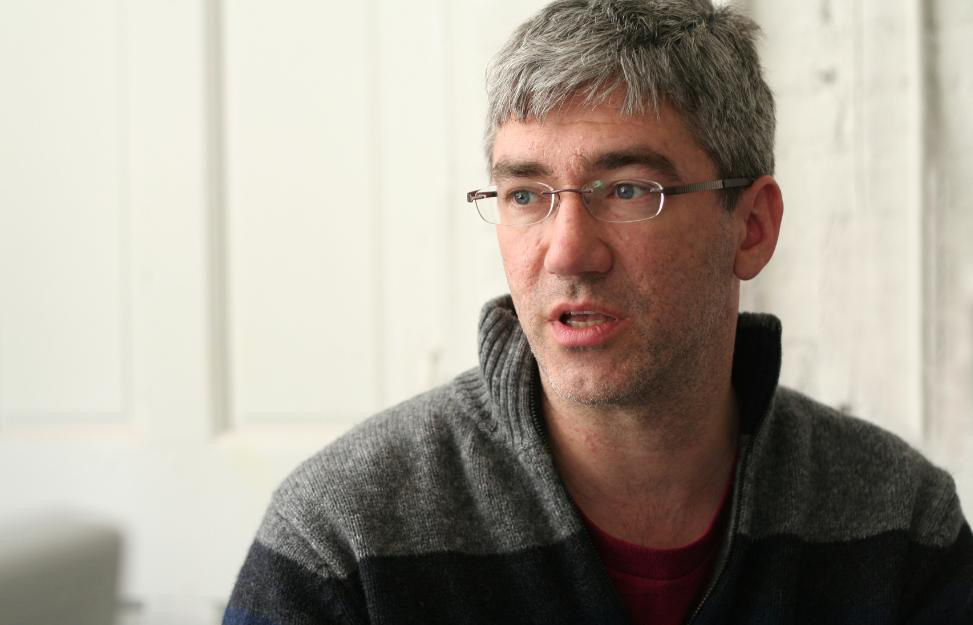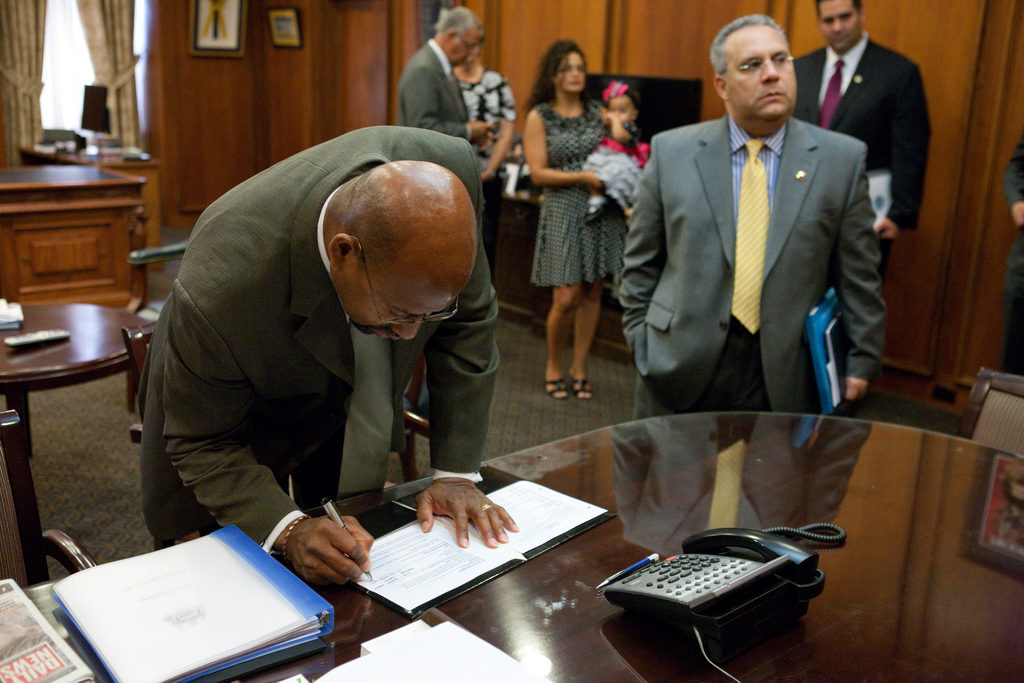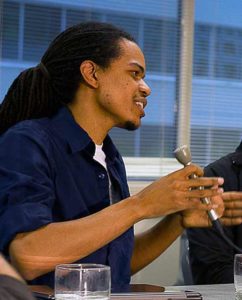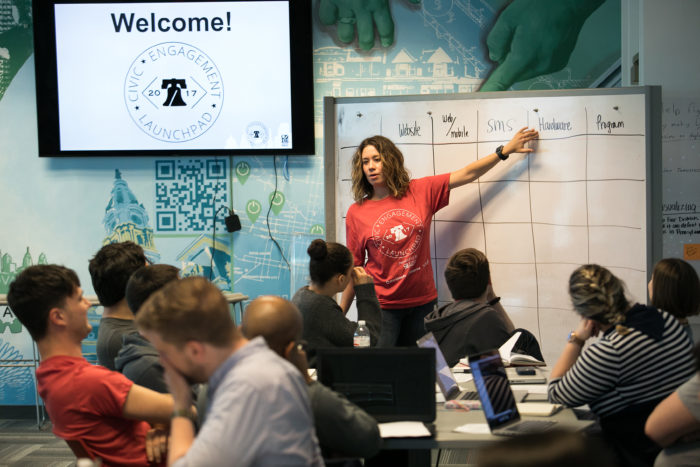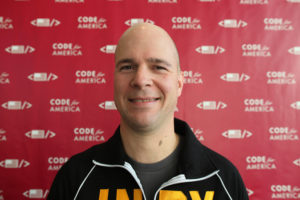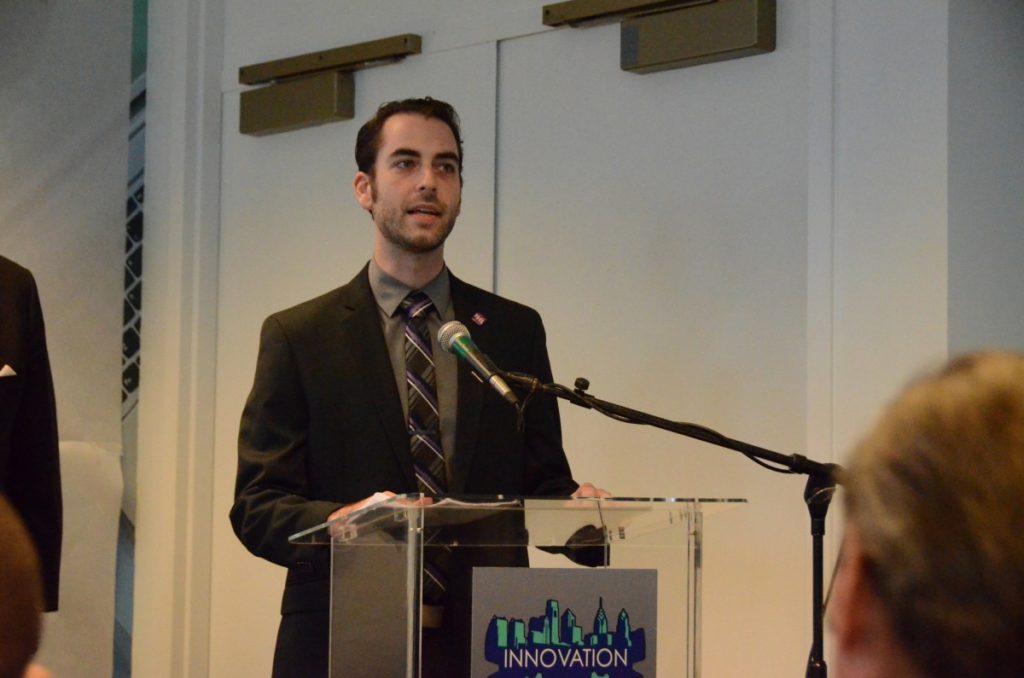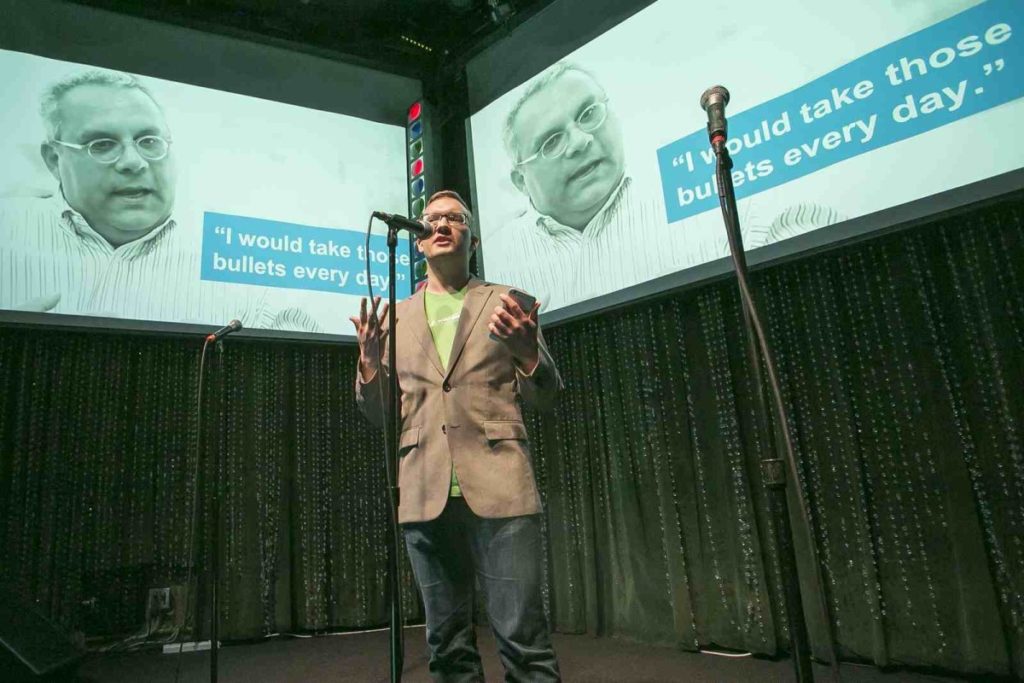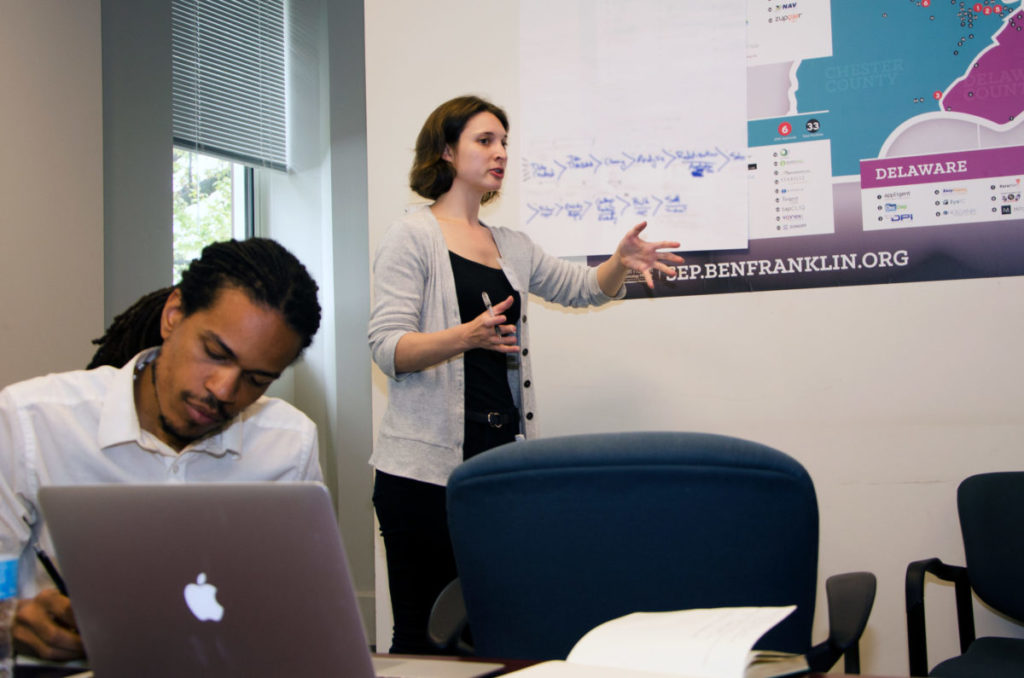These are the 14 people you need to know in Philly civic tech: The realLIST
 December 20, 2017
Category: Featured, Long, People
December 20, 2017
Category: Featured, Long, People
Disclosures
Generocity is a media partner for the Code for Philly Bash presented by AT&T.“Philly is to civic technology what Nashville is to country music.”
That’s what Mark Headd wrote upon leaving the city after a run as the City of Philadelphia’s first chief data officer in 2014.
Once a college gymnast and Delaware government employee, Headd developed enough tech chops to become an early hackathon organizer, tech product evangelist and outspoken open-data champion. His reign as the city’s inaugural CDO was influential, high-profile and, to some, combative. He’s now an innovation specialist at 18F, a startup-y digital services agency within the federal government.
But we’re getting ahead of ourselves.
###
In January, sister site Technical.ly Philly published a list of the 10 most exciting startups it would be following in 2017. It was dubbed The realLIST, and it was good.
This is Generocity’s first realLIST, and it’s not hip tech companies, but people who have shaped Philadelphia’s civic tech community.
- City departments like the Office of Innovation and Technology (OIT) and Office of Open Data & Digital Transformation (ODDT) (which was once a part of OIT itself)
- Open data, the practice of city employees releasing city data sets to the public for the sake of transparency (and so they can be put to good use)
- Projects like SmartCityPHL, which seeks to leverage technology and the Internet of Things for more inclusive city services
- Code for Philly, the volunteer civic hacking group that hosts project-based hackathons and regular meetups to improve city services, among other things
All of the people on the following list have probably attended a Code for Philly hackathon, yes, but civic tech is more than its most vocal convener. These folks are the early adopters and the ones who joined it as Code for America fellows. They represent a snapshot of how Philly’s civic tech community came to be.
Generocity formed this list — winnowed down from a master list of 100 names — with hefty help from Code for Philly organizers Dawn McDougall and Chris Alfano (who would otherwise surely be on it) and input from Technical.ly Philly staff.
Note: Many of those listed here currently work or have worked for the city, but civic tech is more than local government; it’s about civic engagement, too. Still, take this group’s crossover power as a sign the city knows how to hire involved, community-oriented people who were entrenched in civic tech before they got paid to do it.
Another reason it makes sense: Government is the biggest beneficiary of civic-tech efforts — which means, in turn, the next biggest beneficiaries are its citizens.
Robert Cheetham
If you ask Cheetham, he’ll note that the City of Philadelphia has at times been a national leader in open data since the 1990s, when he was just a junior staffer with the city’s police department (yes, now-CTO Charlie Brennan first hired Cheetham). Though dozens of civil servants deserve credit for the city’s early advances in crime data and GIS mapping releases, a critical concept in civic tech is the interplay between citizens and government with technology.
And in that way, ask just about anyone here, and they’ll tell you that Philadelphia’s modern civic-tech community begins with Cheetham, who transitioned his city job into his own software firm, now known as Azavea, which has a specialty in GIS, mapping and related technologies. The B Corp has employed and developed many technologists now active in civic tech and open data, so you won’t be surprised they call him the godfather of open data here.
Adel Ebeid
A three-decade veteran of New Jersey state government, Ebeid was lured by the Nutter administration for what had become a high-profile chief innovation officer position.
Ebeid wasn’t the first public-facing city CIO — his eccentric predecessor Allan Frank deserves credit for making that transition — but he’s ranked high here for his effort in institutionalizing civic tech in City Hall. Nutter and then-Managing Director Rich Negrin gave Ebeid some degree of independence, following his lead on the Open Data Executive Order, recruiting the city’s first (and second) chief data officers and quietly building a city tech team with ties and respect in the city’s broader tech community.
Michelle Lee
Lee was an early fellow of Code for America, a group of young technologists assigned to help forward-thinking city governments (including Philadelphia’s) create open source products that make government more efficient and transparent over the course of a year. The project developed during her fellowship — govtech communications product Textizen — became a company that was later acquired by GovDelivery. Nowadays she works in product at Protocol Labs, where she makes data transfer around the internet faster.
Here’s what she said during her keynote speech at this fall’s Code for America Brigade Congress:
What we do today, with our neighbors and communities, with our Brigades, matters more than ever. We can create local change today. We can gather with Brigades from across the country to share what we’ve learned — including the lessons we’ve learned the hard way about scalable technology, sustainable volunteering, or revenue models. And together, we can use that momentum to light fires across the whole country.
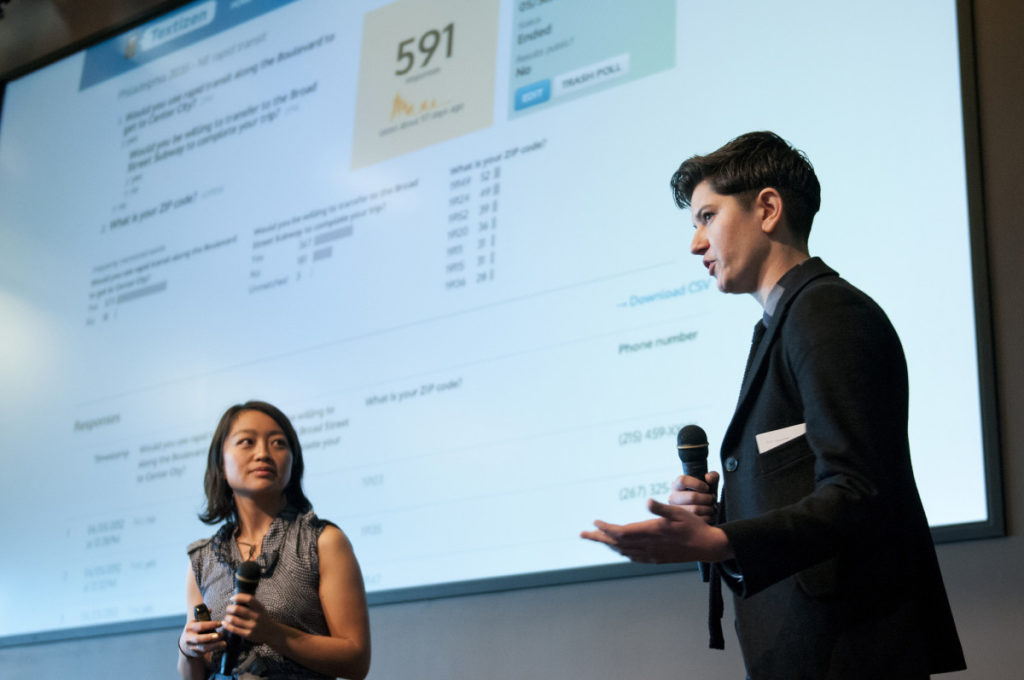
Michelle Lee (left). (Photo by Flickr user John S. and James L. Knight Foundation, used under a Creative Commons license)
Mjumbe Poe
When OpenDataPhilly.org was unveiled during the inaugural Philly Tech Week in 2011, organizers knew they needed an example to help explain what exactly open data was and why anyone might care about it.
Cue Poe, who took an existing data set from the city’s Mural Arts program to launch a simple mural discovery mobile app. It wasn’t pretty, it wasn’t robust, and so it was a perfect example of the tiny experiments that can happen when reliable data is available and sourced in one place.
A native of West Philly and a board member of youth nonprofit Coded by Kids, Poe is a one-time city engineer, Code for America fellow and now CTO of a burgeoning tech startup. He’s a quiet and influential force in collaborating on and shaping the city’s modern civic tech community. His current role with a civic-tech startup only enhances his lengthy resume in this space.
Andrew Buss, Ellen Hwang and Eliza Pollack
The City of Philadelphia’s innovation management team — Deputy CIO Buss and program managers Hwang and Pollack — are defining innovation as it applies to local government with programs such as the Innovation Academy and Digital Literacy Alliance.
Buss is the elder statesman of the bunch. He has played several roles in city IT and was among the early organizers of OpenAccessPhilly (more on that later). Buss was also a part of the effort to bring Code for America fellows to Philly.
Pollack played a big part in the execution of Code for Philly’s spring Civic Engagement Launchpad, a monthlong city-as-a-service hackathon, while Hwang is leading Philadelphia’s SmartCityPHL initiative.
Mark Headd and Tim Wisniewski
For those who know them, their styles are vastly different.
Wisniewski, the city’s current chief data officer, is methodical and comfortable working within the city’s vast bureaucracy. He is young and careful, working within the system. Headd, who now lives in upstate New York and was the city’s first chief data officer, blew threw town like a tornado. He was absolutely influential in setting the tone for how important open data can be, which gave Wisniewski cover to continue the march.
Though Wisniewski is still building his reputation in a reluctant city government, which is still full of lifers suspicious of the amount of attention his projects receive, both remain linked at this stage in civic tech’s history.
Mike Zaleski
Though he keeps a low profile, Zaleski is something of a local hackathon celebrity, respected for both his tech chops and knowledge of navigating complex bureaucracies. He has been deeply influential in pushing SEPTA’s internal open data and civic engagement strategies.
The city’s first transit hackathon? It was with Zaleski. SEPTA’s earliest invitations to bring hackers to its Market Street HQ? It was Zaleski.
Aaron Ogle
Ogle and Poe were members of the inaugural Code for America fellowship class in Philly in 2o11, and Ogle, an early Azavea developer and Ohio native, was among that first wave of outsiders to be swept into City Hall’s civic tech efforts during a time of excitement and momentum.
Ogle was booted from his job as director of civic technology shortly after the Kenney administration took over (as a city employee, he was required to live within city limits and didn’t) amidst other leadership shakeups, and his departure occurred in tandem with an apparent shift in the city’s priorities under new CIO Brennan. He’s now director of product at the OpenGov Foundation and a technology and democracy fellow at the Harvard Ash Center for Democratic Governance and Innovation.
Stacey Mosley
Mosley started her civic-tech career as a data scientist with the city’s Department of Licenses and Inspections, where she played a part in the department’s release of data sets, and was recruited by Headd and Wisniewski to join their team in 2013. Then in fall 2015, she quit her job with the city to found FixList, a startup that uses the city’s open data to find redevelopment potential across Philadelphia neighborhoods. (The company also earned an honorable mention on Technical.ly Philly’s 2017 realLIST.)
Her previous work directly informed this new work: While at the city, Mosley said she was “starting to see how open data was evolving and having ideas of where it could go and what use it could have in the private sector.”
FixList’s first employee? Mjumbe Poe.
Jeff Friedman and Paul Wright
They’re both a bit more removed now but those close to the foundation of the city’s civic tech community know this duo well. Friedman, who worked first with the Street administration and then became an eager part of the Nutter transition team, joined forces with Wright, then in a role at Comcast, to launch what became OpenAccessPhilly, a regular meeting and volunteer-run stakeholder group of early civic technologists.
Friedman was in part charged with then-CIO Allan Frank to build tech community relationships and with OpenAccessPhilly, Friedman, with Wright and the aforementioned Buss, did just that — and it’s from OAP that OpenDataPhilly was formed. Friedman went on to a government tech role with Microsoft and now works with another govtech firm.
###
Those are the bigwigs. Here are some up-and-comers we’re excited about:
- Dave Brindley and Yury Korzun — Brindley came to a Code for Philly hackathon in 2015 with basic premise of wanting to clean up litter in the city, and effectively recruited a team to help him build out the technology, including coder Korzun. Since then, his digital adopt-a-block anti-litter project Not in Philly has gotten national attention, and Brindley has been building a coalition with government and nonprofit partners.
- Anjali Chainani and Liana Dragoman — Chainani is director of policy for the Mayor’s Office, Dragoman is service design practice lead and deputy director for ODDT (and one-time Technical.ly contributor). Their work with GovLabPHL and the PHL Participatory Design Lab, respectively, are breaking down barriers between government and its citizens.
And finally: Who did we miss? Tell us who’s on your civic-tech realLIST.
Full disclosure: Technical.ly cofounder Brian James Kirk is the partner of Stacey Mosley, who is featured on the realLIST. He was not involved in this report. Also, Code for Philly organizer Dawn McDougall, who helped form this list, is the partner of Tim Wisniewski, who is also featured here.
Trending News








